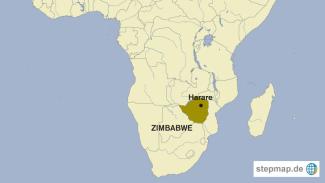Infrastructure
Clean water in the fight against corona virus

There are about 60 such stations, and each has a 200 litre tank. The water is mixed with detergents. Fresh water is brought to the stations twice per day.
The hand-washing stations have been set up by the WASH Covid-19 Prevention and Response Project. The acronym WASH stands for “water, sanitation and hygiene”. GOAL Zimbabwe, a non-governmental organisation, started the project in cooperation with others in June. Support comes from the UN Children's Fund (UNICEF).
Patrick Mirirayi, a WASH project manager for GOAL Zimbabwe, says that about 30,000 people use the stations per week. He sees a lot of enthusiasm. Relevant stakeholders including the soap providers, water suppliers and the handwashing station technicians appreciate the initiative.
Gabriella Prandini, GOAL Zimbabwe country director, says she wants to reach 360,000 of Mbare’s population. Harare has the highest number of Covid-19 cases in the country, and water supply is particularly poor. Prandini says handwashing facilities are urgently needed.
Washing hands is critical in the fight against the Coronavirus pandemic. Most Zimbabweans, however, cannot even afford to buy soap. The price of hand sanitizer also exceeds many families’ budgets.
In Zimbabwe, Covid-19 is just one more crisis piling up on others. Incomes have been eroded by hyperinflation. The climate crisis has reduced water availability. The city of Harare is failing to provide water to its 2 million people, citing poor infrastructure and the impact of incessant droughts for years. The water level of Lake Chivero, the capital city’s main source of water, is very low.
Most Harare residents fetch the precious liquid from open wells in the wetlands. Others rely on a small number of community boreholes, where they risk contracting the virus due to overcrowding. In some suburbs private companies are cashing in on residents when they make home deliveries with bulk water trucks. Filling up a 5,000 liter tank costs about $ 40 in Zimbabwe. That is far beyond the reach of many citizens.
Harare Residents’ Trust director Precious Shumba says the NGO intervention is welcome. He also insists that much more must happen. The city of Harare needs a long-term solution to the water crisis.
Farai Shawn Matiashe is a journalist based in Mutare, Zimbabwe.
Twitter @ZuzeShawn








